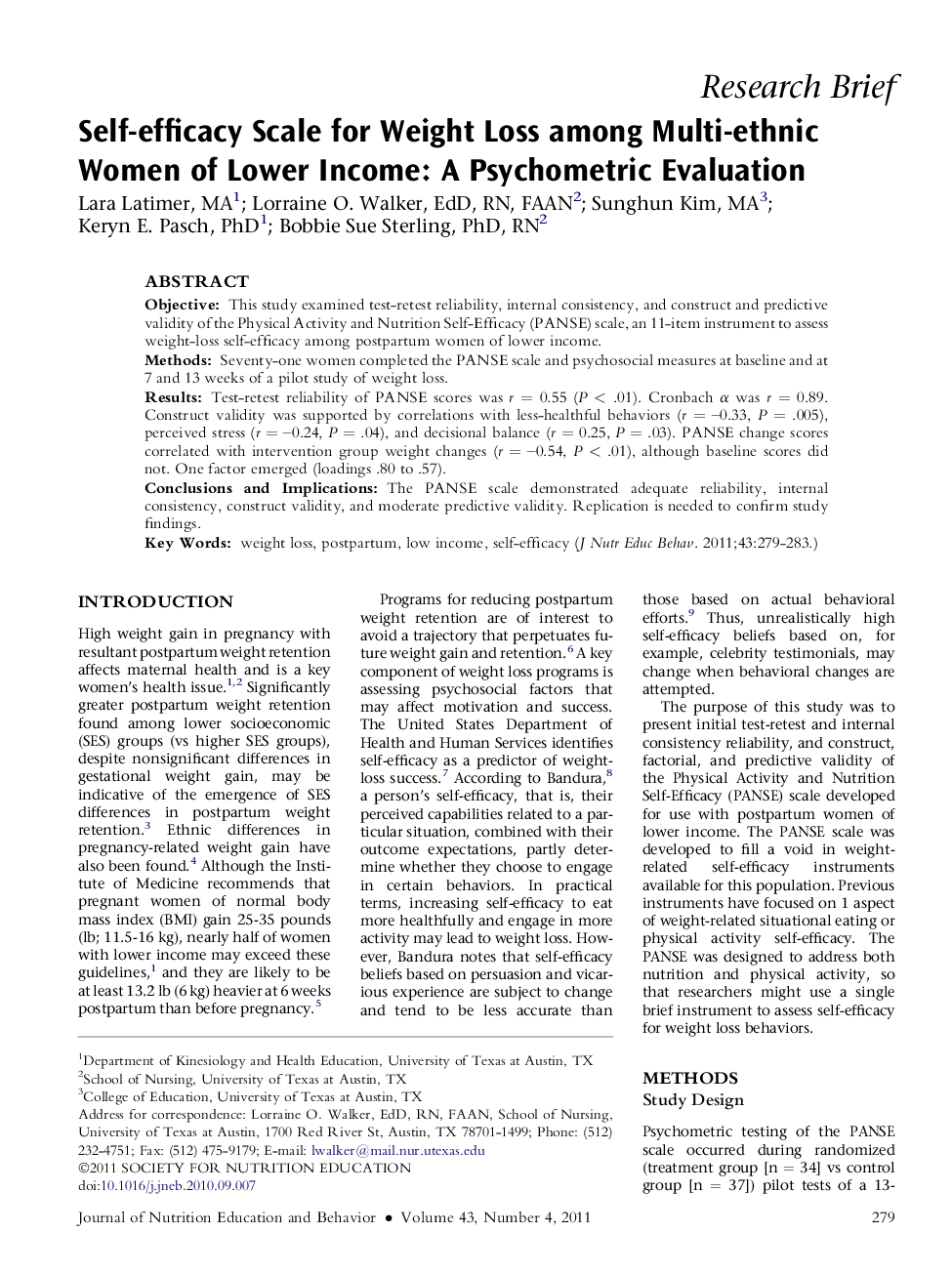| Article ID | Journal | Published Year | Pages | File Type |
|---|---|---|---|---|
| 362240 | Journal of Nutrition Education and Behavior | 2011 | 5 Pages |
ObjectiveThis study examined test-retest reliability, internal consistency, and construct and predictive validity of the Physical Activity and Nutrition Self-Efficacy (PANSE) scale, an 11-item instrument to assess weight-loss self-efficacy among postpartum women of lower income.MethodsSeventy-one women completed the PANSE scale and psychosocial measures at baseline and at 7 and 13 weeks of a pilot study of weight loss.ResultsTest-retest reliability of PANSE scores was r = 0.55 (P < .01). Cronbach α was r = 0.89. Construct validity was supported by correlations with less-healthful behaviors (r = –0.33, P = .005), perceived stress (r = –0.24, P = .04), and decisional balance (r = 0.25, P = .03). PANSE change scores correlated with intervention group weight changes (r = –0.54, P < .01), although baseline scores did not. One factor emerged (loadings .80 to .57).Conclusions and ImplicationsThe PANSE scale demonstrated adequate reliability, internal consistency, construct validity, and moderate predictive validity. Replication is needed to confirm study findings.
